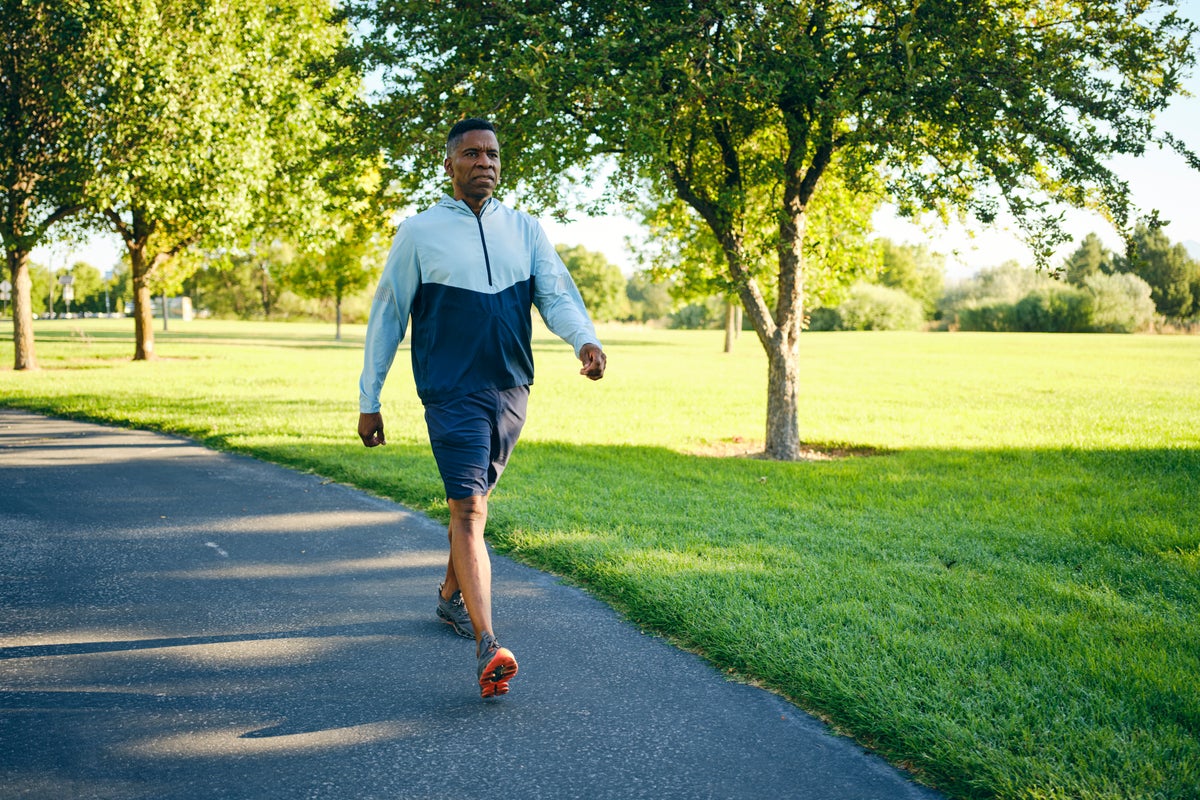
Picking up the pace of your walk for as little as 15 minutes per day could help cut your risk of an early death by 20 per cent, according to a new study.
The long-term benefits of walking around 10,000 steps a day are widely acknowledged by doctors and health professionals, but the new research from a team at Vanderbilt University in Tennessee suggests an increase in walking speed could be a huge boost for health. A smaller boost to longevity was also found in connection with more than three hours of daily slow walking.
Researchers said their findings showed people should “strive to incorporate more intense physical activity into their routines,” adding it was a “highly accessible” way to help boost heart efficiency and control factors linked to cardiovascular disease such as obesity.
“Our research has shown that fast walking as little as 15 minutes a day was associated with a nearly 20 per cent reduction in total mortality, while a smaller reduction in mortality was found in association with more than three hours of daily slow walking,” they wrote.
“This benefit remained strong even after accounting for other lifestyle factors and was consistent across various sensitivity analyses.”

The study, which was published in the American Journal of Preventive Medicine, analysed data from nearly 80,000 predominantly low-income and Black individuals across 12 US states. It found fast walking could help reduce the risk of early death across all causes, but it was most effective in preventing cardiovascular disease.
Lead author of the article Lili Liu called on public health campaigns and community programmes to “emphasise the importance and availability of fast walking to improve health outcomes”.
He said: “Public health campaigns and community-based programs can emphasise the importance and availability of fast walking to improve health outcomes, providing resources and support to facilitate increased fast walking within all communities.
“Furthermore, the findings of the reduced mortality associated with fast walking pace were supported by previous studies conducted in middle- and upper-middle-income populations. Individuals should strive to incorporate more intense physical activity into their routines, such as brisk walking or other forms of aerobic exercise.”







